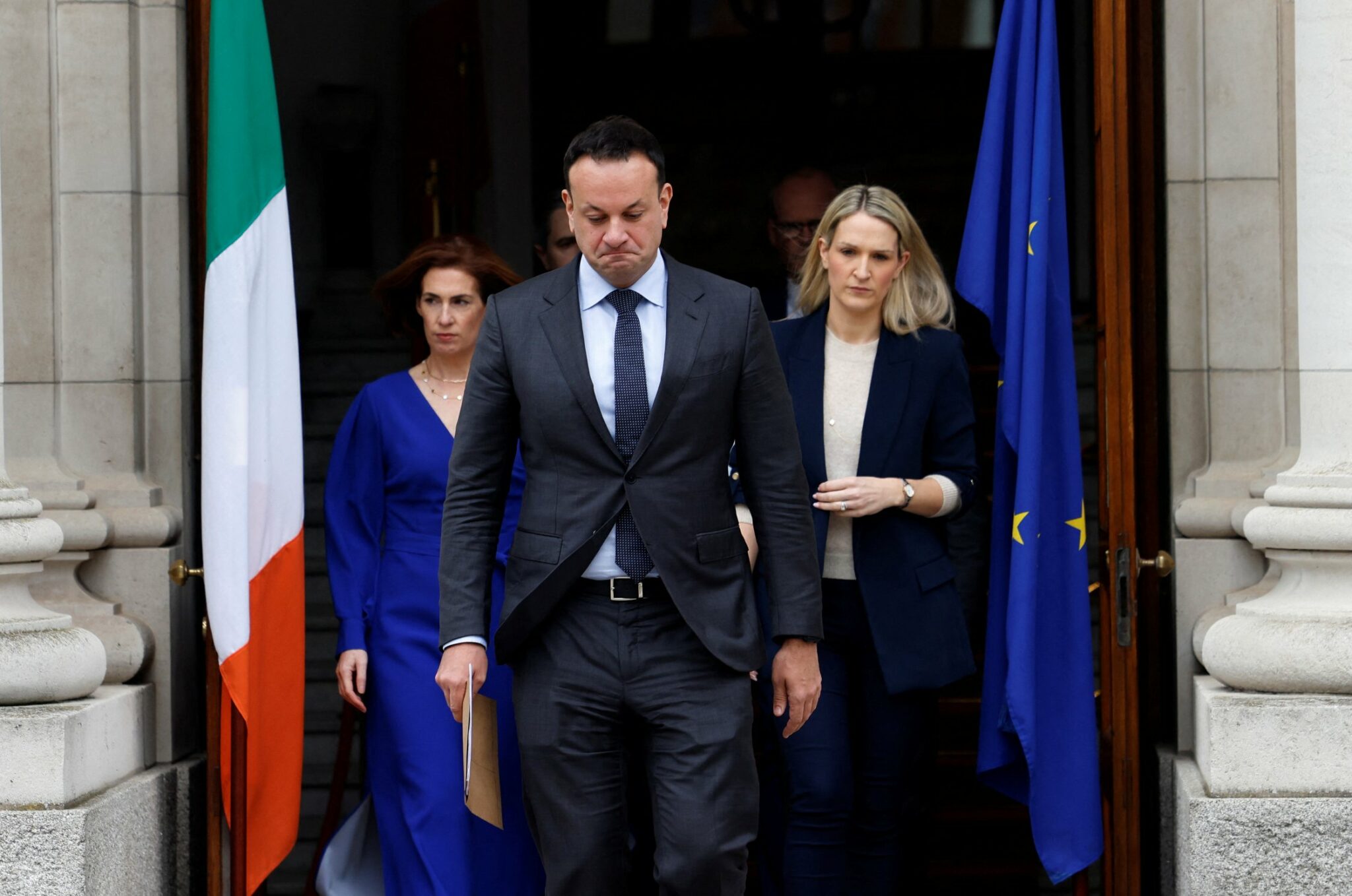Ian Cooper (DCU Brexit Institute)
On 20 March, the Irish Taoiseach Leo Varadkar made the surprise announcement that he was stepping down as leader of his party, Fine Gael. Once his party chooses a successor, that person is set to take over as the leader of the government, a three-party coalition with Fianna Fáil and the Green Party. The new leader will be in place for the local and European Parliament elections (and the referendum on the Unified Patent Court) on 7 June and the next general election, which must be held by March 2025.
Varadkar was Taoiseach during the most febrile period of the Brexit process, when Ireland’s closest neighbour was negotiating its exit from the European Union. Brexit posed a grave threat both to Ireland’s economic interest in maintaining frictionless trade with its EU partners and to its political interest in maintaining peace in Northern Ireland and no land border on the island of Ireland. His predecessor, Enda Kenny, had already worked diplomatic channels to ensure that the EU would prioritize Ireland’s interests in the Brexit negotiations. Varadkar continued this work – but with a style more abrasive than the emollient Kenny, he was frequently a target of the ire of pro-Brexit politicians in the UK.
Varadkar’s first stint as Taoiseach coincided closely with a period of unstable minority government in the UK. He took office in June 2017, just days after the UK election had produced a hung parliament. Theresa May held on to her position as Prime Minister by negotiating a shaky confidence-and-supply agreement with the fractious Democratic Unionist Party (DUP) of Northern Ireland. (Ironically, Varadkar was also the head of a minority government at the time, propped up via a confidence-and-supply agreement with Fianna Fáil.)
Varadkar doggedly defended Ireland’s interests throughout the negotiations, including by lending vocal support to the “backstop” – a device in Theresa May’s Brexit deal that would have guaranteed an open border in Ireland by maintaining a joint UK-EU customs territory. Yet this agreement was repeatedly rejected in the UK parliament, defeated by Tory rebels and the DUP, leading to the fall of Theresa May and the rise of Boris Johnson.
Johnson became PM in July 2019 promising to get rid of the backstop and to leave the EU by any means necessary, including a “no deal” Brexit – which would have been enormously damaging to Ireland. Johnson was increasingly boxed in, forced by parliament to seek a Brexit extension and found by the UK Supreme Court to have acted illegally in trying to prorogue parliament.
It was at this critical moment that Leo Varadkar threw Boris Johnson a lifeline. Whereas the EU had insisted that the Brexit deal could not be reopened, Varadkar finessed the issue by working bilaterally with the UK on a revision to the agreement. The result was a revised Northern Ireland Protocol that removed the backstop in favour of a border in the Irish Sea combined with a democratic consent mechanism involving the Northern Ireland Assembly. This revised Brexit deal was subsequently formally agreed, leading to the UK’s exit from the EU on 31 January 2020.
Varadkar had gambled that it was better to lock in a deal with the untrustworthy Johnson than to risk a no-deal Brexit. The wisdom of this choice remained uncertain for several years thereafter as the UK government repeatedly threatened to use various unilateral measures (the Internal Market Bill, Article 16, and the Northern Ireland Protocol Bill) to break international law and renege on the agreement. Only since February 2023, when the situation was stabilized by the Windsor Framework that the EU agreed with Rishi Sunak, does it seem that Varadkar’s choice has been finally vindicated.
The Brexit deal was followed by elections in both the UK and Ireland. Boris Johnson’s Conservatives won an 80-seat majority in December 2019. The Irish electorate was not as kind to Varadkar, whose party came in a close third behind Sinn Féin and Fianna Fáil in February 2020. Voters’ gratitude for his successful management of Brexit was outweighed by discontent on other pressing issues such as housing and health.
Varadkar was still in post during the post-election coalition talks when Covid-19 hit Ireland. After capably managing the early months of the pandemic (he is a medical doctor), Varadkar stepped aside to become Tánaiste while Micheál Martin assumed the role of Taoiseach in June 2020. Then by previous agreement the two men switched places again in December 2022. Now the country is set to have a new Taoiseach in the coming weeks.
As the youngest-ever and first openly gay and ethnic minority Taoiseach, Varadkar was a ground-breaking politician in many respects. But his time in office will likely be judged by his handling of Brexit, a tumultuous issue that roiled UK, Irish and EU politics and the reverberations of which are still being felt.
Ian Cooper is a Research Fellow at the Brexit Institute at DCU. His research addresses questions of democracy and constitutionalism in the European Union, with a particular focus on the role of parliaments. He tweets from @IanCooperEU.
The views expressed in this blog post are the position of the author and not necessarily those of the Brexit Institute blog.
Photo Credit – Damien Eagers/REUTERS



